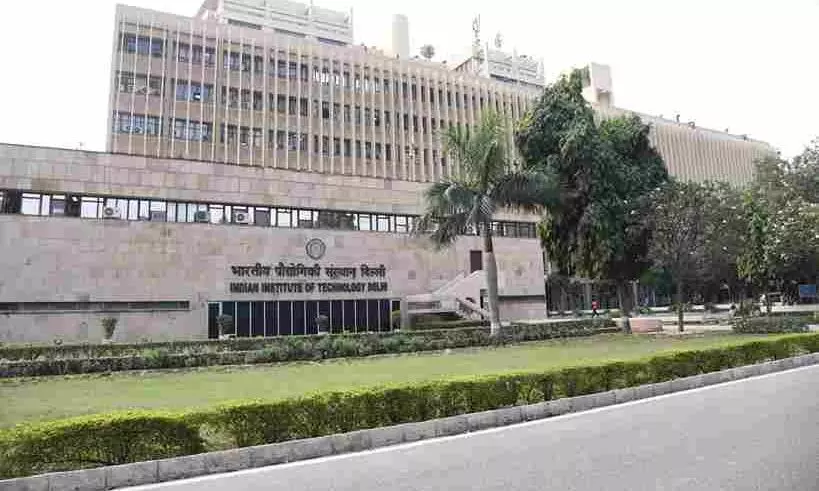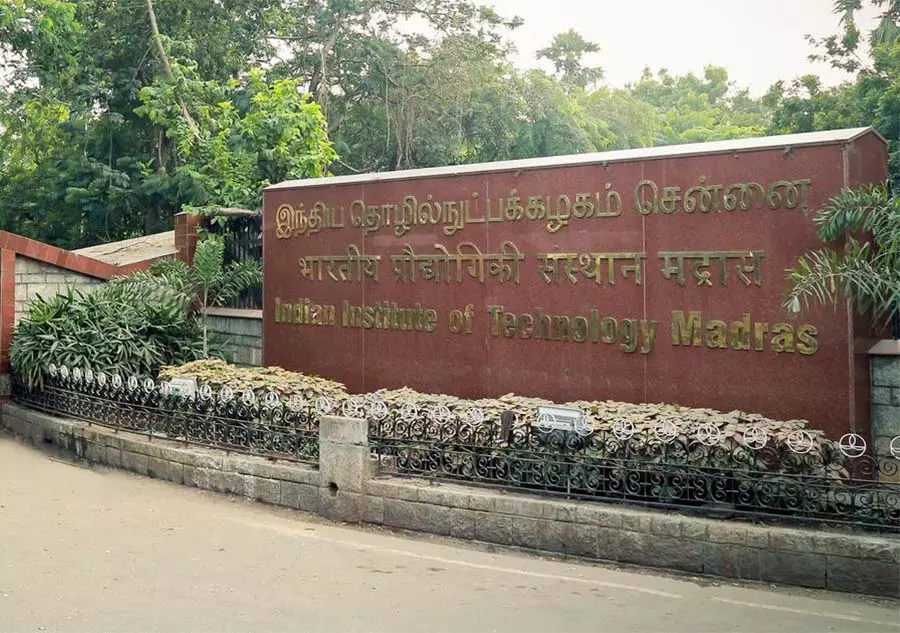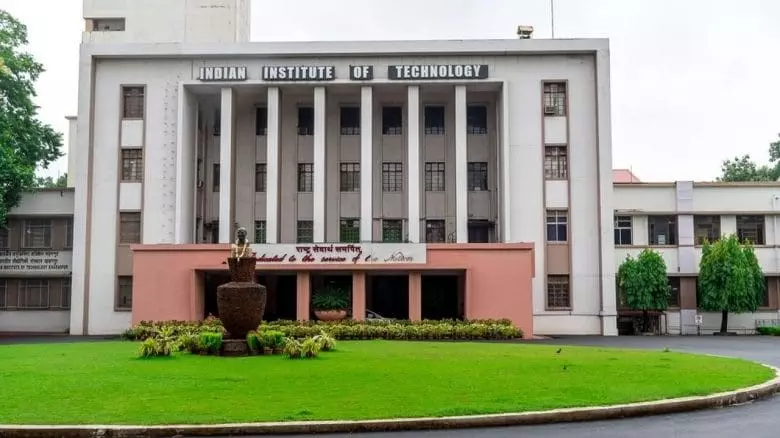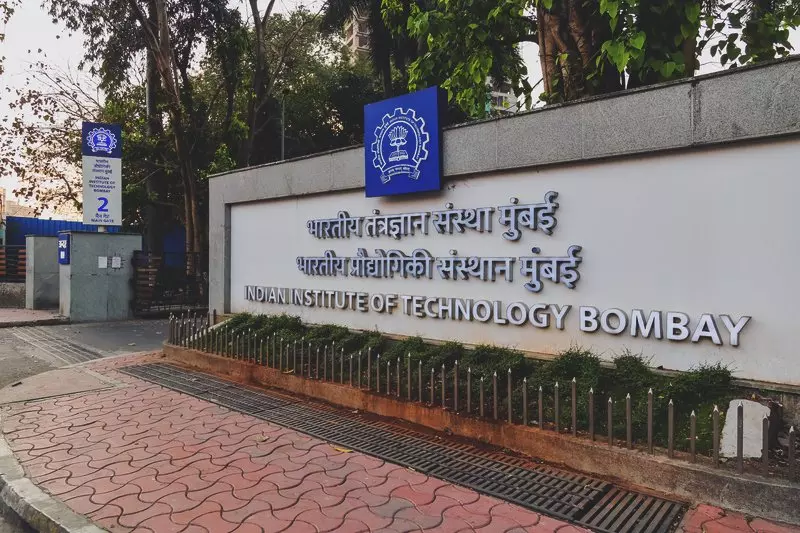
- Home
- India
- World
- Premium
- THE FEDERAL SPECIAL
- Analysis
- States
- Perspective
- Videos
- Sports
- Education
- Entertainment
- Elections
- Features
- Health
- Business
- Series
- In memoriam: Sheikh Mujibur Rahman
- Bishnoi's Men
- NEET TANGLE
- Economy Series
- Earth Day
- Kashmir’s Frozen Turbulence
- India@75
- The legend of Ramjanmabhoomi
- Liberalisation@30
- How to tame a dragon
- Celebrating biodiversity
- Farm Matters
- 50 days of solitude
- Bringing Migrants Home
- Budget 2020
- Jharkhand Votes
- The Federal Investigates
- The Federal Impact
- Vanishing Sand
- Gandhi @ 150
- Andhra Today
- Field report
- Operation Gulmarg
- Pandemic @1 Mn in India
- The Federal Year-End
- The Zero Year
- Science
- Brand studio
- Newsletter
- Elections 2024
- Events
Are India's premier education institutes doing enough to address students' mental health issues, prevent suicides
An SC appointed national task force was set up on 'mental health of students and prevention of suicide in higher educational institutions'. But in a recent order, the apex court observed that 'almost 57,000 institutes have not responded so far' to the task force's survey

Last month, the Supreme Court (SC) issued a notice to the Indian Institute of Technology (IIT) Kharagpur after a Dalit student with borderline personality disorder was denied a transfer to IIT Delhi to access affordable treatment at the All India Institute of Medical Sciences (AIIMS). Notices were also issued to IIT Delhi and AIIMS, seeking a response from all three. The case comes on the...
Last month, the Supreme Court (SC) issued a notice to the Indian Institute of Technology (IIT) Kharagpur after a Dalit student with borderline personality disorder was denied a transfer to IIT Delhi to access affordable treatment at the All India Institute of Medical Sciences (AIIMS). Notices were also issued to IIT Delhi and AIIMS, seeking a response from all three. The case comes on the heels of the court’s landmark July ruling that recognised mental health as an “integral component of the right to life”. While the intervention could help the first-year Architecture student, IIT Kharagpur’s initial refusal hints at a deeper crisis — students’ continuing struggle with mental health issues in premier institutes like IITs and Indian Institute of Management (IIMs), amid a worrying rise in suicide cases.
Just this March, a Dalit student from Andhra Pradesh died by alleged suicide at IIT Ropar. Last week, an IIT Kanpur student was found dead in his hostel room in a case of suspected suicide. It was the second such case in the institute this year, after a PhD scholar allegedly ended his life in February. In August, an IIT Bombay student died after allegedly jumping from the hostel terrace.
It is not the IITs alone.
In September this year, a student was found dead in the BITS Pilani Goa campus – the fifth death in 10 months here. In May, a PhD student at IIM Tiruchi died by alleged suicide, and in January, a student from the other backward classes (OBC) community was found dead at IIM Bangalore. In the latter case, though, while the institute claimed it to be a case of death by suicide, the family raised doubts of foul play.
According to a student of BITS Pilani, Goa, one of the main stressors – apart from the “brutal” evaluation and course design – was rejection from various extracurricular clubs that created mental pressure, and the stigma attached with going to counsellors, especially for first-year students.
Caste and gender discrimination also played a major role in making students feel marginalised and unable to fit into the culture of these premier institutes, alleged a student from IIT Hyderabad. A study by IIT Delhi’s Board of Student Publications in 2019 found that while 75 per cent of reserved category students were negatively affected by casteist remarks, as many as 59 per cent of general category students said they were either neutral or agreed with such remarks.
According to reports, an RTI filed by IIT Kanpur alumnus Dheeraj Singh found at least 115 students from the Indian Institutes of Technology (IITs) died by alleged suicide between 2005 and 2024, of which 98 deaths were on campus. The RTI, reports said, was filed after the 2023 death of Darshan Solanki, an IIT Bombay student, which sparked a national reckoning over caste discrimination and mental health on campuses.
“I have been here for over three years. Just recently, there was another student suicide, probably the seventh case since I joined,” a PhD student at IIT Kanpur told The Federal. “In addition to the deaths, there are countless attempts, where luckily someone informs the security guards and they are immediately rushed to the health centre and hospital and their lives are saved.”
She alleged: “In several cases, if a (suicide) note implicates the faculty or institution, they try to make it disappear, or a truncated version is made public.” The student claimed the institute created an environment of “professional jealousy” and a sense of competitiveness. “There are emails that are circulated about a student's achievement. Other students feel pressured, thinking they are not doing good enough work. Jealousy is explained away as a character flaw, but it’s being created by this ecosystem,” she said.

File photo of IIT Delhi.
At IIT Delhi, five cases of alleged student suicides in 2023–24 led to the formation of a 12-member committee chaired by professor Santosh Kumar Chaturvedi (former Dean, NIMHANS) to examine institutional causes. The committee’s August 2024 report highlighted a culture of toxic competition, post-coaching burnout, caste and gender bias, and overemphasis on grades as primary stressors. It noted widespread alienation among first-generation and marginalised students and said counselling services often lacked diversity sensitivity and confidentiality safeguards. The report also identified mistrust between students, faculty, and administrators as a factor deepening distress. Its recommendations included instituting a comprehensive anti-discrimination policy, reducing first-semester load, adding life skills and civic education, mandatory first-year counselling, sensitivity training for faculty and staff, and modifying leadership eligibility norms to reduce grades dependence.
According to an IIT Delhi student, “many” of the committee’s recommendations were adopted, but still there were “mixed opinions on what is working and what is not”. The last publicly available minutes for a Students’ Affairs Council meeting, held on November 6, 2024, stated, “The student representing Indradhanu presented a report on student feedback regarding the current student counseling services (SCS) at IIT Delhi. Concerns were raised that the existing SCS framework does not fully address students’ mental health needs, citing inadequate follow-up after initial sessions, slotting issues, and other concerns.” Indradhanu is IIT-D’s LGBTQIA+ collective.
Data presented by the minister of state for education in the Rajya Sabha in 2023 showed that 98 students across higher educational institutions died by alleged suicide between 2018 and mid-2023. According to the recently released National Crime Records Bureau’s “Accidental Deaths & Suicides in India” report, 13,892 students died by suicide in 2023, up from 13,044 in 2022. Student suicides accounted for 8.1 per cent of all suicides reported nationwide in 2023, compared to 7.6 per cent in 2022. While this includes school students, the trend reflects an escalating crisis of mental health and institutional pressure within India’s education system, issues most visible in its premier institutes.
“Having worked closely with students from premier engineering and management institutions, I’ve observed that repeated cases of suicide and mental health crises in these spaces stem from a deeply ingrained culture of perfectionism and relentless performance pressure. Many students arrive already carrying the weight of expectations to secure top placements, excel academically, or meet family aspirations, and when the outcome doesn’t align with that ideal, their entire sense of self-worth collapses,” said Dr Roma Kumar, senior consultant psychologist at Sir Gangaram Hospital in Delhi.
Kumar too cited factors such as caste, gender, sexuality and religion, which “often intensify students’ mental health challenges”. “For example, a student once shared how being the only woman in her engineering batch meant constantly proving her competence, while another struggled with caste-based remarks disguised as ‘jokes’,” she added.
Kumar said institutions needed to go beyond offering counselling and “ensure that mental health initiatives acknowledge these socio-cultural realities rather than treating distress as purely individual”.
Also read: Beloved, but lacking opportunities: How Biharis outside Bihar view their home state
The institutions have, in their own way, tried to address the issue.
“Dedicated faculty advisers have been assigned to each student, and the faculty advisers have been advised to meet the assignees at least once a month and provide a suitable update on the student’s stress. In addition, faculty members have been dining with their assignees at least once a month in any of the student messes. This activity has been monitored to identify any academic stress-related indicators. In the academic year 2023-24, all students and staff were put through a comprehensive mental health survey. Thereafter, from the start of the academic year 2024, new joinees have been mandated to complete a mental health survey as a part of the induction programme,” IIT Madras said in a written response to questions by The Federal.

File photo of IIT Madras
The institute said they also had a dedicated wellness officer, apart from 24x7 counselling for students. “The institute has implemented the ‘Be Happy’ website, which is the IIT Madras wellness platform, offering students access to mental health resources, counselling services, and feedback tools,” it said.
IIT Bombay too said it had 24x7 counselling services and that the Students’ Wellness Centre (SWC) had “partnered with an external agency to provide round-the-clock support beyond physical consultation hours”. The institute started a ‘Flourishing Hub’ in March this year, which “offers the wellness course as a part of the curriculum for first-year UG students. This course focuses on equipping students with practical tools and skills for self-reflection, stress management, emotional regulation and building positive interpersonal relationships. It also aims to normalise conversations around mental health and promote help-seeking behavior,” IIT Bombay public relations officer told The Federal.
IIT Delhi organised a 12-week wellness workshop from January to April this year, with 14 counsellors on campus to support students. The institute also has an Academic Progress Group (APG) of faculty, which “assists students who find themselves academically adrift, ensuring that temporary setbacks do not derail their academic progress” by offering “structured academic advising, identifying subject-specific challenges, and allocating trained student tutors to provide targeted academic assistance”.
IIT Hyderabad has a counselling cell named ‘Sunshine’; however, only three of its 171 members are counsellors – the rest being teachers, mentors, students and management.
At IIT Kharagpur, SETU (Support, Empathy, Transformation, Upliftment), a holistic mental health programme has been designed to create an inclusive and proactive support system for students. A key feature of SETU is its AI-powered emotional health monitoring system, which enables anonymous check-ins and uses early-alert tools across hostels and academic spaces to detect signs of emotional distress.
However, according to the institute’s director, Suman Chakraborty, the crisis of students’ mental health has foundational roots.
“There are at least 16,000 students at IIT Kharagpur. The crisis we are witnessing among them has not been created by IIT. It is the result of our current education system and societal structure. Right when a student clears the JEE and enters IIT, they start developing a mindset that they must land a job worth crores. If that doesn’t happen, they begin to feel their life is a failure. But we cannot provide a counselor for every single student to change this mindset. We need to understand that this is a social disease,” he recently told the media.

File photo of IIT Kharagpur.
The Federal also reached officials at IIM Calcutta, Ahmedabad, Indore and Lucknow over email for comment, but received no response.
Also read: Festive buying to wedding shopping, why the middle class is struggling to purchase gold jewellery
In February this year, an SC bench comprising Justices Surya Kant and N. Kotiswar Singh was told by senior advocate Indira Jaising that 18 students had died by alleged suicide in IITs and IIMs over the past 14 months, to which it said, “It is extremely unfortunate what is happening. We will create a robust mechanism to check this situation. We will take this issue to the logical conclusion.”
In March, an SC appointed national task force (NTF) was set up on “mental health of students and prevention of suicide in higher educational institutions”. Students, parents, faculty, mental health service providers and, most importantly, institutional representatives were asked to fill out a survey form.
In a sharply worded order dated October 10, Supreme Court judges JB Pardiwala and R Mahadevan came down heavily on institutes that had failed to respond to the NTF survey. The SC said it was “thoroughly disappointed” to learn that “almost 57,000 institutes have not responded so far to the survey”.
“We are informed that the Union of India has four times informed all these institutes to cooperate in the survey. However, till this date, there has been no response at their end,” the SC said in its order. Threatening action if there was no response, the court stated, “we would like to give one last opportunity to all these institutes to cooperate and join the survey, failing which we may have to pass some orders which the institutes may not like and may bring a bad name to the respective institutes.” The order came in an ongoing case pertaining to the death of two Dalit students on the IIT Delhi campus in 2023, allegedly by suicide. Family members of the two students had approached the court alleging that both students faced caste discrimination.

File photo of IIT Bombay.
Dr Aqsa Shaikh, professor at the department of community medicine, Hamdard Institute of Medical Sciences and Research, who is a member of the team, said the NTF was trying to get “a 360-degree view of the problem”.
“To colleges, institutions, and universities, we are asking for a lot of detail, including the number of student suicides that have happened in the past five years,” she told The Federal. “To students, we are asking where they feel discriminated against. Have they had suicidal thoughts, was help available, etc,” she added.
Shaikh said the interim report would be submitted to the court in the next two-three weeks. The final report is set to be submitted in December.
(With inputs from Samir Kar Purkayastha, Shweta Tripathi and Saleem Shaik)
